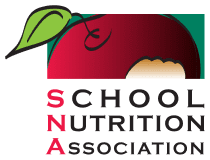Expand NSLP/SBP to offer healthy school meals for all students at no charge.
School meals are an essential investment in the future of America’s children. They are proven to boost academic achievement, improve student behavior and health, and combat food insecurity and obesity. Congress should ensure every student has equal access to nutritious school meals that support their success by offering free school meals to all students.
The benefits of school meals for all:
In a recent SNA survey, school districts with free meal service, through state initiatives or the Community Eligibility Provision (CEP), reported a variety of successes, including decreased stigma for low-income students as well as increased school meal participation and operational efficiencies.
Eliminating the burdensome free and reduced-price meal application process ensures no child goes hungry at school or feels ashamed to take a healthy meal. School nutrition professionals can focus on nourishing students, without having to worry about verifying which child is eligible for a free meal and which child must pay. Students benefit from a speedier meal service and more time to eat their fruits and vegetables and schools benefit from less administrative paperwork.
Recent research in Massachusetts, one of nine states offering free meals to all during School Year (SY) 2023-24, indicates overwhelming support from families, with large majorities reporting that the policy saved their family money, time and stress and improved their students’ behavior and academic achievement. Families expressed concerns about food insecurity and stigma for their children should free meal service end.
The cost of charging for meals:
Meal application forms only collect income data, not expenses, so families struggling to afford a rent increase, high health care costs or other emergencies may not qualify for any help. Meanwhile, some eligible children go without because their families are fearful of reporting personal information on the application form. 90.1% of school meal programs that must charge for meals report challenges getting families to submit application forms.
Additionally, 92.8% of programs that charge for meals report challenges with unpaid meal debt, a significant burden on families and school district budgets. When families are unable to pay for student meals, schools must cut into education funds to cover the debt. Alarmingly, the overall reported median unpaid meal debt continues to climb compared to prior surveys, with median debt at $5,495 in November 2023 compared to $5,164 the year prior, up from $3,400 at the end of SY 2017-18.
SNA’s 2024 Position Paper urges Congress to expand NSLP/SBP to offer healthy school meals for all students at no charge. SNA also supports federal and state proposals to advance this goal, including eliminating the reduced-price category, so students eligible for reduced-price meals receive them for free, and increasing the CEP multiplier to make the program financially viable for all eligible schools.
Category
Resource Type
Year Added
2024

